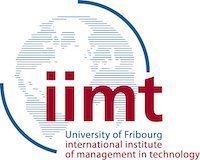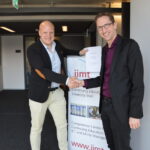A world of
opportunities

The international institute of management in technology (iimt) is a leading Swiss competence centre for management in technology, offering excellent executive training programmes and cutting-edge research since 1995.
Latest News
Learn more about our brand new programmes focused on Machine Learning, AI and Data Science for managers and join our online information session on May 4, 17:00
Our three new courses are designed for managers. The aim is to provide...
The iimt and Campana & Schott renew their partnership
The iimt, represented by its director Prof. Dr. Stephan Nüesch, and Campana &...
Learn more about our new CAS Business Analytics and Artificial Intelligence, CAS Data-driven Business Models and Training Data Science for managers
The CAS Business Analytics and Artificial Intelligence offers a profound overview...
Highlights
Prof. Dr. Stephan Nüesch is the new director of the international institute of management in technology (iimt)
Welcoming the new boss! We are proud to announce that our new Director,...
Next Courses
25 years of excellence
Future leaders attended iimt’s Specialised Courses
Graduates successfully completed Executive MBA, Diploma or CAS Programme
Graduates contribute to the sustainable development of our Alumni Network
The iimt is an institute within University of Fribourg and has been a leading Swiss competence centre for management in technology for more than 25 years.







